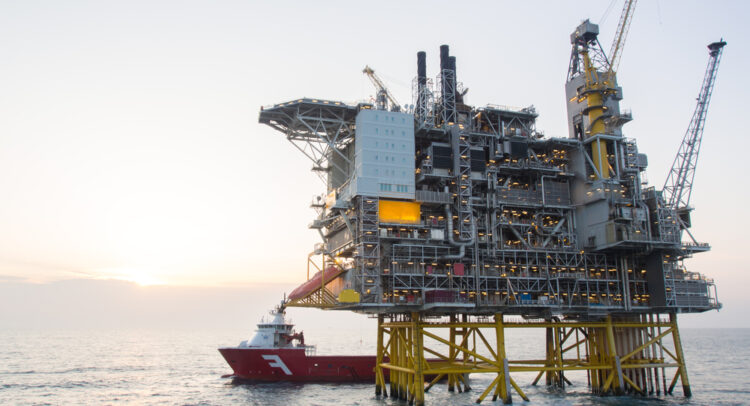Repsol SA ((REPYY)) has held its Q4 earnings call. Read on for the main highlights of the call.
Elevate Your Investing Strategy:
- Take advantage of TipRanks Premium at 50% off! Unlock powerful investing tools, advanced data, and expert analyst insights to help you invest with confidence.
Repsol’s latest earnings call showcased a robust financial performance, with the company achieving notable growth in low-carbon and customer divisions. Despite these achievements, Repsol faces challenges in its upstream and chemical segments, alongside market volatility and regulatory changes that could pose future hurdles.
Strong Financial Performance
Repsol reported an impressive adjusted income of €3.3 billion and delivered €6.3 billion in operating cash flow, surpassing their guidance. The company also provided total shareholder remuneration of €1.9 billion, underscoring its financial strength and commitment to rewarding shareholders.
Shareholder Returns
In a bid to bolster shareholder value, Repsol increased its cash dividend by approximately 30% to €0.90 per share. Additionally, the company redeemed 60 million shares, equating to 5% of its share capital, highlighting its dedication to returning value to its investors.
Low Carbon Generation Growth
Repsol’s renewable capacity reached 3.7 gigawatts by year-end, marking a significant milestone in its low-carbon strategy. The company plans to further expand this capacity by 2025, demonstrating its commitment to sustainable growth.
Customer Division Growth
The customer division saw a 7% increase in adjusted income, reaching €659 million. This growth was driven by strong performance in service stations and the power and gas retail sectors, pointing to effective execution of strategic initiatives.
Advancements in Strategic Projects
Repsol’s strategic projects, including Leon-Castile in the Gulf and Pikka in Alaska, are progressing well and are expected to contribute to future production increases, aligning with the company’s long-term growth objectives.
Challenges in the Upstream Division
Despite overall strong performance, Repsol’s upstream division faced challenges, with a 16% decline in adjusted income year-over-year, primarily due to lower gas prices and volumes, highlighting areas needing attention.
Chemical Business Struggles
The chemical business continued to struggle, posting a negative EBITDA. Although there was a slight improvement in margin indicators, the segment remains a concern for the company’s financial health.
Potential Market Challenges
Repsol acknowledged concerns regarding the volatility of gas prices and potential economic impacts, which could affect its operational flexibility and decision-making processes in the near future.
Environmental Regulatory Changes
The company noted upcoming environmental regulatory changes as potential financial challenges, emphasizing the need for significant capital expenditures in low-carbon projects to meet compliance requirements.
Forward-Looking Guidance
Looking ahead, CEO Josu Jon Imaz outlined several financial expectations for Repsol. The company plans for a net CapEx of €16 billion to €19 billion over four years, with anticipated cash flow from operations between €6 billion and €6.5 billion in 2025. Shareholder distributions are expected to remain at 30% to 35% of cash flow from operations, reflecting confidence in sustained financial performance.
In conclusion, Repsol’s earnings call painted a picture of strong financial health, with significant shareholder returns and growth in key divisions. However, the company must navigate challenges in its upstream and chemical sectors, as well as adapt to market and regulatory changes. Investors and market watchers will be keen to see how Repsol addresses these challenges while maintaining its growth trajectory.
















